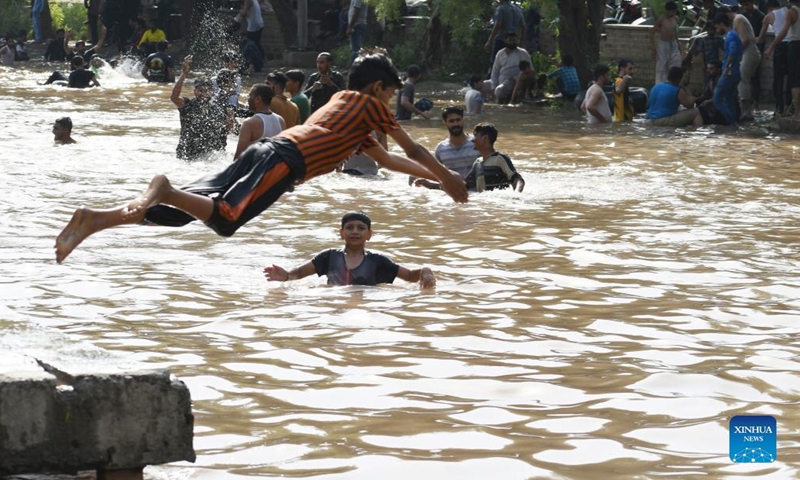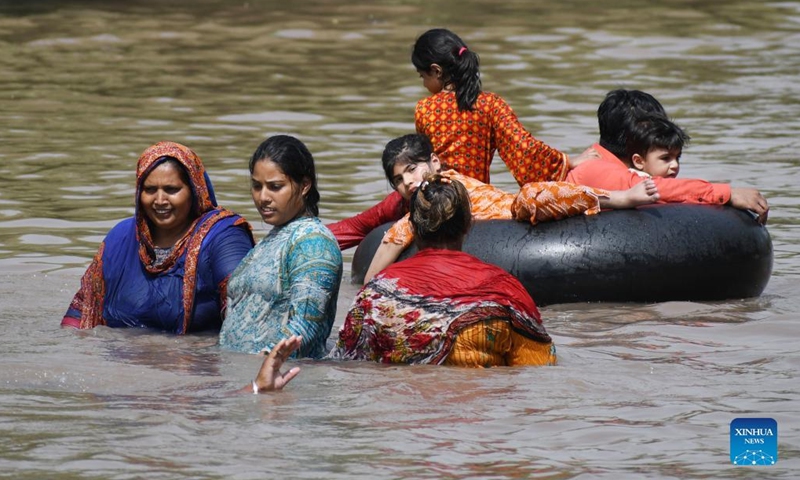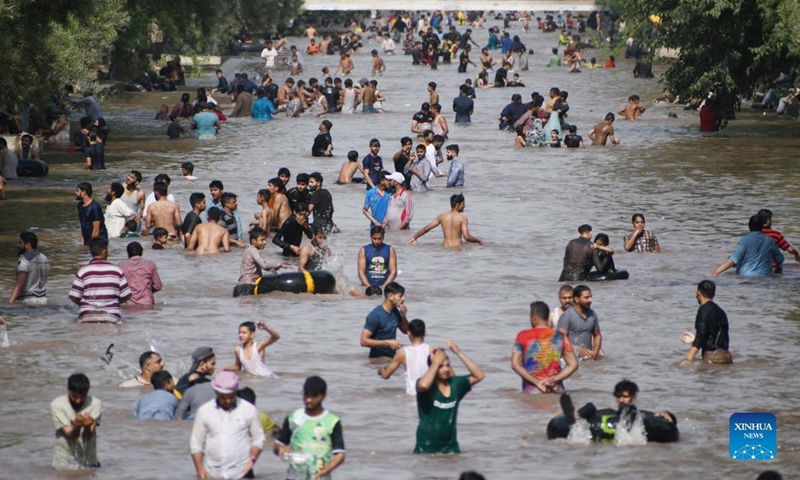
People cool off in a canal during a heatwave in Lahore, Pakistan, on May 16, 2022. Pakistani Prime Minister Shahbaz Sharif on Monday constituted a task force to deal with the pressing issue of climate change in the country, the Prime Minister's Office said. The decision was taken at a high-level meeting amid the recent heatwave and direct consequences of climate change in Pakistan, the office said in a statement.(Photo: Xinhua)

People cool off in a canal during a heatwave in Lahore, Pakistan, on May 16, 2022. Pakistani Prime Minister Shahbaz Sharif on Monday constituted a task force to deal with the pressing issue of climate change in the country, the Prime Minister's Office said. The decision was taken at a high-level meeting amid the recent heatwave and direct consequences of climate change in Pakistan, the office said in a statement.(Photo: Xinhua)

People cool off in a canal during a heatwave in Lahore, Pakistan, on May 16, 2022. Pakistani Prime Minister Shahbaz Sharif on Monday constituted a task force to deal with the pressing issue of climate change in the country, the Prime Minister's Office said. The decision was taken at a high-level meeting amid the recent heatwave and direct consequences of climate change in Pakistan, the office said in a statement.(Photo: Xinhua)
Pakistani Prime Minister Shahbaz Sharif on Monday constituted a task force to deal with the pressing issue of climate change in the country, the Prime Minister's Office said.
The decision was taken at a high-level meeting amid the recent heatwave and direct consequences of climate change in Pakistan, the office said in a statement.
Currently, climate change has severely affected Pakistan, causing the ongoing intense heatwave across different parts of the country, wildfires in the northern areas, water and food shortages, and the melting of Shishper glacier in the Karakoram mountain range which recently resulted in a big accident.
The prime minister directed the task force to develop a comprehensive strategy to mitigate the effects of climate change, avoid repeat of Shishper glacier incidents in the future and solve the water and food shortages in the country, the statement said.
He said the strategy should also encompass steps for water conservation and protection of existing reservoirs and forests.
The meeting was informed that climate change is the core reason behind the recent heatwave in Pakistan, the statement said, adding that the country is faced with threat of a water shortage which will have direct repercussions on the agriculture sector.
Sharif ordered the immediate launch of a public awareness campaign for water conservation and urgent measures to be taken for the storage of rainwater before the onset of the monsoon.
The prime minister also requested that the ministry of education should guarantee that standard operating protocols for heatwave in public and private schools are followed, according to the statement.
